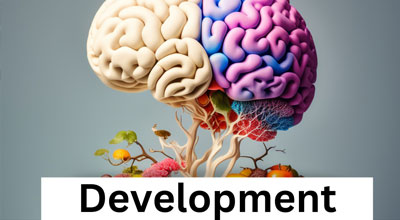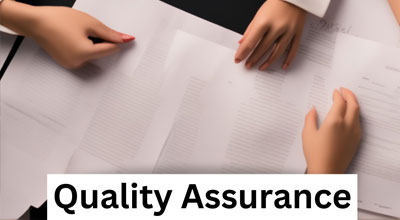Our EDUREFORM project team members are engaged in several tasks and activities which will help to mitigate the impact of the Fourth Industrial Revolution on Indian Society and bring an education reform through future and in-service teachers’ training. Our main aim is to promote critical, creative, and analytical thinking skills in secondary schools in order to adapt the Indian youth to the dynamic and demanding essence of the labour markets. Our tasks are divided in management, developmental, visibility and quality assurance activities.

The developmental activities of EDUREFORM were at the core of our main goal: to instigate an educational reform that would prepare students to have an inquiring mind adaptable to the fast-changing nature of societies and labor markets.
As part of the developmental activities, the team prepared and presented a set of innovative pedagogical tools for Indian students, enhancing their critical, creative, and analytical thinking skills. This set of tools formed the EDUREFORM curricula taught at our four Indian Universities.
To bring this educational reform to reality, vocational training sessions were organized for in-service teachers, with a focus on school teachers. Teaching them how to impart the EDUREFORM curricula aimed to prepare Indian secondary school children and upgrade their skills for the labor market.
Additionally, the team developed resources crucial for training sessions and to increase the project’s impact. The EDUREFORM Book, containing selected and developed pedagogical tools, has been launched. Plans are underway for a MOOC Course, enabling educators worldwide to study our tools through distance learning.
RESULTS:
- Trained 111 academic and non-academic intra-consortium staff in 14 EDUREFORM developmental sessions.
- Executed EDUREFORM Curricula: renewed/created 179 academic modules, launched an e-course, and conducted regular vocational training, revising 179 modules equivalent to ~1146.5 ECTS.
- Trained 2275 Indian pre-service and in-service teachers during the EDUREFORM curricula implementation, delivering 11 vocational training sessions and disseminating 22 pedagogical tools among 524 in-service teachers.
- Engaged 42 universities, schools, and non-academic stakeholders to promote the EDUREFORM curricula.
- Involved and sponsored 83 Indian students during the execution of EDUREFORM students’ internship mobility.
- Invested in young human resources and engaged senior staff at consortium institutions/organizations, contributing to the training, career advancement, and international exposure of EDUREFORM Innovation Managers.
- Internationalized teaching activities at Indian HEIs, involving European partners in delivering the EDUREFORM curricula and fostering durable international and inter-institutional teamwork dynamics.
- Developed qualitative, sustainable, and impactful learning activities, enhancing skills and scientific quality of beneficiaries’ learning activities.

Our EDUREFORM Consortium had 11 partners from across India and Europe. Good coordination was essential, and we ensured it by promoting well-functioning communication channels and meeting periodically in what we called our EDUREFORM Consortium Board Meetings. We made sure that we were all on the same page. Of course, the financial part was also accurately followed and implemented. Here, our Support & Care team played a crucial role to ensure that all documents were up to date and that we never missed a deadline.
RESULTS:
- Conducted 13 plenary and regular bilateral meetings to optimize project management.
- Facilitated daily interactions between project beneficiaries and the Care and Support Team for effective decision-making and project implementation.
- Held regular financial management meetings.
- Improved activity implementation through regular interactions between EDUREFORM quality organs and project beneficiaries.
- Ensured sustainability through an integrated quality assurance system embedded in the project’s managerial organ.
- Provided clarity on EU grant management, developmental and visibility activities, equipment procurement, and correct reporting processes.
- Addressed force majeure circumstances faced by project beneficiaries.
- Optimized human resources and increased internal communication.
- Enhanced project visibility and prestige through early involvement of experts in branding and design.
- Trained young Indian human resources in managing international multi-stakeholder projects.

Visibility and outreach were the driving forces behind project management in the past. It was a dynamic force propelling the entire process forward, never ceasing. Internal visibility, on one hand, ensured that all relevant partners had a clear picture of the project’s performance, including potential risks, distribution of responsibilities, and overall project goals. Providing all stakeholders with visibility into work and project progress secured alignment and added an element of accountability. Seeing in real-time how projects were progressing enabled effective decision-making and empowered our team to work more nimbly. On the other hand, external outreach channels allowed us to raise awareness about the issues EDUREFORM tackled, helping us reach wider audiences and become visible in our societies by building networks with peers from around the world.
Social media had a lot to offer for those navigating the agitated waters of project management. That was why our EDUREFORM team always tried to stay updated with the latest tools that technology brought us. You could have followed us on LinkedIn, Facebook, YouTube, and Instagram. Our team also launched the EDUREFORM Newsletter: the EDUINFORMER. Don’t forget to have subscribed if you wanted to have kept abreast with the latest news in education and to check on us!
Overall, we viewed our communication strategy as the glue that connected everything together and ensured that the right activity was taking place at the right time, reaching the right audience through the right channels.
To go more in detail, the EDUREFORM Platform successfully hosted 10 Expert Talk Series, where educators from around the world presented interesting perspectives on different issues the education systems were facing at that time.
The Indian Partners had hosted EDUREFORM Inaugural events on virtual platforms in their respective institutions, where the project was introduced to a wider audience, and prominent experts were invited as speakers to engage the audience in different topics related to EDUREFORM.
Our team had also launched this website, which paired with their social media channels – Facebook, LinkedIn, and Instagram – helped them raise the visibility of the project. Our social media accounts had gained a good number of followers, and we were active on a daily basis.
The Final conference of the EDUREFORM project was organized at Chitkara University, helping to build a strong alliance with all the partners and ensuring that the project indeed brought the much-needed change required in the Education system of India.
RESULTS:
- Conducted 28 public events, including 6 inaugurals and 7 international workshops.
- Reached 10,858 individuals and engaged 196 organizations during public events.
- Secured media coverage with 59 articles and TV reports, reaching 470 learners through the online course.
- Achieved 5.8 million impressions and 1.8 million views with the awareness campaign.
- Published 60 articles and distributed 989 copies of the “EDUREFORM Handbook.”
- Released a special issue in the Journal of e-Learning, reaching 1600 readers.

We were aware that expecting quality outcomes from the EDUREFORM project necessitated ensuring the quality of processes. Both our Internal and External Assurance Quality teams blended qualitative and quantitative evaluation tools, delivering their assessments and recommendations to our EDUREFORM Consortium. Their efforts aided in keeping us on the right track and maintaining focus on achieving our main goals. In addition, these teams conducted thorough analyses, utilizing a range of effective tools to assess the quality of processes within the project. This comprehensive approach allowed us to continually refine and enhance our methodologies, contributing to the overall success of the EDUREFORM initiative.
RESULTS:
- Regularly assessed preparatory, developmental, and visibility activities, issuing 16 quality reports.
- Supported partners in correct project implementation.
- Conducted a final assessment for project impact and sustainability.
- Monitored the impact of EDUREFORM Innovation Managers.
- Assessed outcomes of intra-consortium developmental camps.
- Assisted Indian partners in recruiting (4) full-time talents for project implementation.
- Enhanced meritocracy in selecting young talents.
- Minimized the risk of cultural clashes within the consortium.
- Assessed compliance with Funding Agency regulations for technical-administrative project management.
- Provided suggestions to enhance overall project management.
- Improved administrative management of the project’s accountancy.